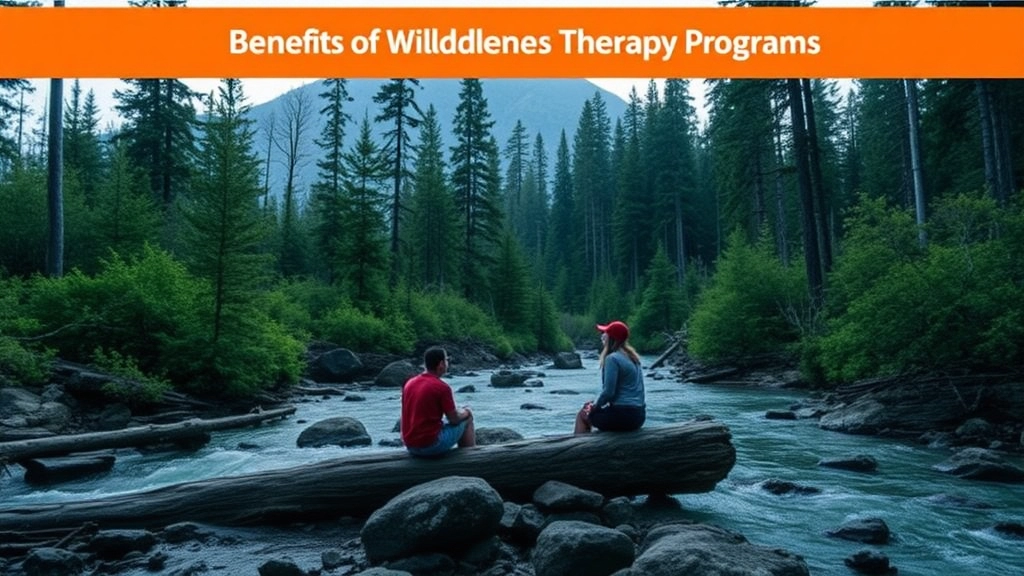Finding the Right Summer Camp for Troubled Youth
Finding the right summer camp for troubled youth can be a game-changer for both teens and their families. These specialized programs are designed to help at-risk teens through structured, therapeutic, or wilderness experiences. Combining traditional summer camp activities with therapeutic interventions, these camps offer a safe environment to address behavioral, emotional, and psychological issues.
Therapeutic Approaches
Whether it’s through wilderness therapy, boot camps, or other therapeutic activities, these camps aim to improve mental health, build life skills, and provide the support troubled teens need. Parents can find peace of mind knowing their children are in a setting that prioritizes safety and effectiveness while fostering personal growth and healing.
Types of Camps for Troubled Youth
Hey, let’s talk about something that’s been on a lot of parents’ minds lately â the different types of camps for troubled youth. If you’re reading this, you’re probably worried about your teen and wondering what options are out there. You’re not alone. Many parents are in the same boat, trying to figure out the best way to help their kids get back on track. So, let’s break it down.
Wilderness Therapy Camps
First up, we’ve got wilderness therapy camps. Imagine sending your teen out into the great outdoors for some serious soul-searching. These camps use nature as a backdrop for therapy. The idea is simple but powerful: nature heals. Your teen will learn survival skills, teamwork, and self-reliance while getting the therapeutic support they need. It’s like hitting the reset button but with a view.
Key Benefits:
- Builds resilience and self-confidence
- Encourages teamwork and cooperation
- Provides a break from technology and everyday stressors
Therapeutic Boarding Schools
Next, let’s talk about therapeutic boarding schools. These are more structured environments where therapy and academics go hand-in-hand. If you’re worried about your teen falling behind in school while they get the help they need, this could be a solid option. These schools offer a blend of therapy sessions, academic classes, and extracurricular activities.
Key Benefits:
- Balanced focus on education and therapy
- Long-term, consistent support
- Safe and structured environment
Boot Camps
Boot camps â you’ve probably seen these in movies, right? Think military-style discipline and structure. These camps are all about teaching respect, responsibility, and discipline through a rigorous schedule of physical activities and chores. They’re not for everyone, but they can be a game-changer for teens who need a serious wake-up call.
Key Benefits:
- Instills discipline and respect
- Promotes physical fitness
- Provides a highly structured environment
Summer Camps for Troubled Teens
And then there are summer camps designed specifically for troubled teens. These camps usually run during the summer months and offer a mix of fun activities and therapeutic support. It’s a great way for your teen to have a memorable summer while also working on their issues.
Key Benefits:
- Short-term commitment
- Combines fun and therapy
- Provides a break from the usual environment
Residential Treatment Centres
Lastly, we have residential treatment centres. These are the heavy hitters in the world of therapeutic camps. They offer intensive, round-the-clock care for teens dealing with serious issues like substance abuse, severe depression, or behavioural disorders. Think of it as a hospital meets a boarding school, with a strong focus on therapy.
Key Benefits:
- Intensive, 24/7 care
- Comprehensive treatment plans
- Highly trained staff
So, What’s the Right Fit?
Choosing the right type of camp for your troubled youth can be a daunting task. But remember, each type of camp offers unique benefits tailored to different needs. Whether it’s the healing power of nature in wilderness therapy, the balanced approach of therapeutic boarding schools, the discipline of boot camps, the fun yet supportive environment of summer camps, or the intensive care of residential treatment centres â there’s something out there for every teen.
If you’re looking for a comprehensive guide to different summer camps, check out our top reviews for summer camps to make an informed decision.
Key Benefits of Wilderness Therapy Programs

Ever wondered if sending your troubled teen to a wilderness therapy program is worth it?
You’re not alone.
Many parents grapple with this decision, weighing the pros and cons, and hoping for a solution that truly works.
Let’s dive into why wilderness therapy programs can be a game-changer for troubled youth.
Immediate Disconnect from Negative Influences
First off, the wilderness offers a complete break from the usual environment.
- No more negative friends.
- No more digital distractions.
- Just nature and a chance to reset.
Builds Resilience and Self-Reliance
Teens learn to face challenges head-on.
- They set up their own tents.
- They cook their own meals.
- They navigate through the wild.
This builds resilience, self-reliance, and a sense of accomplishment.
Therapeutic Environment
Nature itself is therapeutic.
- The serene environment helps reduce stress and anxiety.
- The absence of urban chaos provides a mental breather.
This sets the stage for deeper emotional healing.
Group Dynamics and Social Skills
Teens work in groups.
- They learn to communicate better.
- They develop empathy.
- They understand the importance of teamwork.
Professional Guidance
These programs aren’t just about roughing it in the wild.
- They’re led by skilled therapists and counsellors.
- These pros guide teens through emotional and behavioural issues.
- They offer one-on-one sessions and group therapy.
Real-Life Skills
Wilderness therapy isn’t just about emotional growth.
- Teens learn practical skills too.
- Survival skills.
- Problem-solving.
- Leadership.
These are tools they can use in everyday life.
Personal Stories
I remember one parent telling me about their son, Jake.
Jake was lost in a world of bad choices and low self-esteem.
After a few weeks in a wilderness therapy program, he came back changed.
- More confident.
- More focused.
- More in control of his emotions.
Long-Term Impact
The benefits aren’t just short-term.
Studies show that teens who go through wilderness therapy often sustain their improvements.
- They perform better in school.
- They have healthier relationships.
- They’re more prepared for future challenges.
Therapeutic Activities Offered at Camps
Ever wondered what actually happens at these camps for troubled youth? I’ve been there, and I get it. You’re probably asking, âWhat kind of activities will my teen be doing? Will they actually help?â Let’s break it down.
Why Therapeutic Activities Matter
First off, the keyword here is therapeutic activities. These are not your run-of-the-mill camp activities. They’re designed to help teens work through their issues, build skills, and gain confidence. Here’s the lowdown:
Types of Therapeutic Activities
- Group Therapy Sessions
- Teens share their experiences in a safe, supportive environment.
- Facilitated by trained therapists.
- Helps build social skills and empathy.
- Individual Therapy
- One-on-one sessions tailored to each teen’s needs.
- Focuses on personal challenges and goals.
- Provides a space for deep, personal reflection.
- Adventure Therapy
- Activities like rock climbing, hiking, and canoeing.
- Builds trust, teamwork, and resilience.
- Teens often find these activities empowering and fun.
- Art and Music Therapy
- Creative outlets for expressing emotions.
- Helps in processing complex feelings.
- Can be incredibly cathartic and revealing.
- Equine Therapy
- Working with horses to develop responsibility and empathy.
- Horses mirror emotions, providing immediate feedback.
- Can be transformative for teens struggling with emotional regulation.
Real-Life Examples
Let me share a quick story. I know a teen who was really struggling with anger and isolation. Through adventure therapyâspecifically rock climbingâhe learned how to trust others, face his fears, and channel his anger into something productive. He didn’t just climb rocks; he climbed out of his emotional pit.
Structure and Discipline in Boot Camps

Ever wondered if a boot camp is the right fit for your troubled teen?
You’re not alone.
It’s a question that keeps a lot of parents up at night.
Boot camps have a rep for their strict structure and discipline.
But what does that really mean for your child?
Let’s break it down.
The Daily Routine
Boot camps run on a tight schedule.
Every minute is accounted for.
From dawn till dusk, teens are engaged in activities designed to instill discipline and respect.
- Early Wake-Up Calls: No more sleeping in. Teens are up at the crack of dawn.
- Physical Training: Think military-style workouts. Push-ups, running, obstacle courses.
- Chores and Responsibilities: Everyone has tasks. Cleaning, cooking, maintaining the camp.
The Discipline Factor
Discipline is the cornerstone of boot camps.
It’s about teaching responsibility and self-control.
- Clear Rules: No ambiguity. Rules are black and white.
- Immediate Consequences: Break a rule, face the consequence. No delays, no excuses.
- Positive Reinforcement: Good behaviour is rewarded. It’s not all about punishment.
Real Talk: Stories from the Trenches
I once spoke to a parent whose son went through a boot camp.
He was a good kid but had lost his way.
After six months, he came back more focused, more respectful.
It wasn’t easy, but it worked.
Is It Right for Your Teen?
Boot camps aren’t for everyone.
They’re intense.
But for some teens, that’s exactly what they need.
If your teen responds well to structure and clear rules, it could be a game-changer.
Key Takeaways
- Structure: Every day is planned out.
- Discipline: Rules are strict and consequences immediate.
- Transformation: Many teens come out more focused and disciplined.
Still unsure?
That’s okay.
Choosing the right camp is a big decision.
But understanding the structure and discipline of boot camps can help you make an informed choice.
Choosing Between Wilderness and Therapeutic Camps
Alright, so you’re stuck between choosing a wilderness camp or a therapeutic camp for your troubled teen. It’s a tough call, right? You’re probably asking yourself, âWhich one will actually help my kid?â or âWhat’s the real difference anyway?â Let’s break it down, no fluff, just the real deal.
What’s the Difference?
Wilderness Camps: Think of these as outdoor classrooms. They’re all about using nature to teach life skills and build resilience. Your teen will be hiking, camping, and learning survival skills. The focus is on physical challenges and teamwork.
Therapeutic Camps: These are more like a blend of therapy sessions and traditional camp activities. They offer a structured environment with a mix of counselling, group therapy, and recreational activities. The goal is to tackle emotional and behavioural issues head-on.
What’s Your Teen’s Personality?
- Adventurous and Active: If your teen loves the outdoors or needs a break from screens and city life, a wilderness camp might be their jam.
- Needs Emotional Support: If they’re dealing with deeper emotional or behavioural issues, therapeutic camps provide a more controlled and supportive environment.
Key Benefits of Each
Wilderness Camps:
- Resilience: Builds mental toughness through physical challenges.
- Teamwork: Encourages cooperation and social skills.
- Nature Therapy: The great outdoors can be incredibly calming and healing.
Therapeutic Camps:
- Professional Support: Access to trained therapists and counsellors.
- Structured Environment: Clear routines and rules that help teens feel safe.
- Holistic Approach: Combines therapy with fun activities to keep teens engaged.
Questions to Ask Yourself
- What are my teen’s specific needs? Are they more emotional or behavioural?
- What kind of environment will they thrive in? Do they need the structure of therapy or the freedom of the wilderness?
- What’s the end goal? Are you looking for immediate behavioural changes or long-term emotional growth?
Real Stories, Real Results
I remember a mate of mine who sent his son to a wilderness camp. The kid came back more confident and self-reliant. On the flip side, another friend chose a therapeutic camp for her daughter who was struggling with anxiety. The structured therapy sessions made a world of difference. Both camps worked, but for different reasons and different needs.
Making the Decision
Here’s a quick checklist to help you decide:
- Assess Your Teen’s Needs: Emotional vs. behavioural.
- Research: Look into different camps, read reviews, and maybe even visit if you can.
- Consult Professionals: Talk to your teen’s therapist or counsellor for recommendations.
- Involve Your Teen: Get their input. They’re more likely to engage if they feel part of the decision.
Choosing between wilderness and therapeutic camps doesn’t have to be a headache. It’s all about matching the camp’s strengths with your teen’s needs. Remember, the goal is to find a place where they can grow, heal, and come back stronger. So, what’s it going to be? Wilderness adventure or therapeutic support? Either way, you’re taking a step in the right direction for your teen’s future.
For more insights on camp options, check out our complete guide to summer camps and explore the essential guide to summer camp waivers to ensure you’re well-prepared.
Safety and Effectiveness of Summer Camps for Troubled Teens

Ever worry if a summer camp is the right fit for your troubled teen?
You’re not alone.
Parents often ask if these camps are safe and if they actually work.
Let’s dive into it.
Safety First
When we talk about safety, we mean physical, emotional, and psychological safety.
Physical Safety:
- Camps are usually located in secure, monitored environments.
- Staff are trained in first aid and emergency protocols.
- Activities are designed to be challenging but not dangerous.
Emotional and Psychological Safety:
- Camps employ licensed therapists and counsellors.
- There’s a low staff-to-teen ratio, ensuring individual attention.
- Confidentiality and respect are top priorities.
Effectiveness
So, do these camps actually help?
Short answer: Yes.
But let’s break it down:
Immediate Benefits:
- Teens get a break from their usual environment.
- They learn new coping skills.
- They build self-esteem through challenging activities.
Long-Term Impacts:
- Improved behaviour and emotional regulation.
- Better academic performance.
- Stronger family relationships.
Real Talk: What to Look For
Not all camps are created equal.
Here’s what to keep an eye on:
- Accreditation: Look for camps accredited by reputable organisations.
- Staff Credentials: Ensure the staff are qualified and experienced.
- Parent Reviews: Check online reviews and ask for references.
Stories from the Trenches
I remember a friend whose son was spiralling out of control.
They sent him to a summer camp, and he came back a changed person.
He learned to manage his anger and even made lifelong friends.
Role of Family Involvement in the Healing Process
Alright, let’s get real. When your teen is struggling, it’s not just their battleâit’s a family affair. You might be asking yourself, “How much should I get involved?” or “Is my presence even helping?” The short answer: Family involvement is crucial. It can be the game-changer in your teen’s healing journey.
Why Family Involvement Matters
First off, let’s break it down. Why does your involvement matter? Here are a few reasons:
- Support System: Teens need a strong support system. Knowing their family is behind them can boost their confidence and motivation.
- Consistency: Reinforcing what they learn at camp at home ensures consistency. It’s like learning a new language; practice makes perfect.
- Understanding: Being involved helps you understand what your teen is going through. It bridges the gap between their experience and your expectations.
Ways to Get Involved
So, how can you get involved without overstepping? Here are some practical steps:
- Attend Family Therapy Sessions: Many camps offer family therapy. Engage actively in these sessions.
- Regular Communication: Keep in touch with camp counsellors. Get updates on your teen’s progress and challenges.
- Homework: Yes, you might get homework too! Follow through on any tasks or exercises recommended by therapists.
- Visitations: If the camp allows, visit your teen. Face-to-face interactions can be incredibly powerful.
Real-Life Example
Let me share a quick story. I knew a family where the parents were initially sceptical about their involvement. They thought, “Isn’t this the camp’s job?” But once they started attending family therapy sessions, they saw a massive shift. Their teen went from being closed off to openly sharing feelings. The family dynamic improved, and the healing process accelerated.
Benefits of Family Involvement
Here’s the kicker. When families get involved, the benefits are huge:
- Improved Communication: Families learn to communicate better, reducing misunderstandings and conflicts.
- Stronger Bonds: Working through issues together strengthens family bonds.
- Long-Term Success: Teens are more likely to maintain their progress when they have ongoing family support.
Common Concerns
You might be thinking, “What if I make things worse?” or “I’m not a therapist; how can I help?” Here’s the deal:
- Trust the Process: The camp’s professionals will guide you. Trust their expertise.
- Be Patient: Healing takes time. Don’t expect overnight miracles.
- Stay Positive: Your positive attitude can be a beacon of hope for your teen.
Behavioural and Emotional Issues Addressed

Ever feel like you’re at your wits’ end with your teen’s behaviour?
I get it.
It’s tough.
You’re not alone.
Many parents face the same struggles.
So, what behavioural and emotional issues do these camps actually address?
Let’s break it down.
Common Issues
1. Anger Management:
Teens often struggle with anger.
It can lead to fights, arguments, and even violence.
Camps offer anger management techniques to help them cope better.
2. Anxiety and Depression:
Mental health is a big deal.
A lot of teens deal with anxiety and depression.
Therapeutic camps provide a safe space to talk about their feelings.
3. Substance Abuse:
Drugs and alcohol are real problems.
Camps focus on substance abuse education and recovery.
4. Defiance and Rebellion:
Teens can be defiant.
They push boundaries.
Camps instil discipline and respect.
5. Social Skills:
Some teens struggle to make friends.
Camps help improve social skills through group activities.
Real Stories
I remember a lad named Tom.
He was always angry.
Fighting in school, arguing at home.
At camp, he learned to channel his anger.
He found peace in nature, and his parents saw a huge change.
Another example is Sarah.
She was battling severe anxiety.
She couldn’t even attend school.
After a few weeks at camp, she started opening up.
She made friends and even led a group project.
How Camps Help
So, how do these camps actually help?
Here’s the scoop:
- Therapy Sessions: One-on-one and group therapy sessions.
- Outdoor Activities: Hiking, camping, and survival skills.
- Life Skills: Cooking, cleaning, and personal responsibility.
- Peer Support: Teens support each other, creating a sense of community.
Why It Works
Why do these methods work?
Simple.
They remove teens from their usual environment.
They offer a fresh start.
They provide professional support.
And they build real-life skills.
How to Select the Right Camp for Your Teen
Choosing the right camp for your troubled teen can feel like navigating a maze with a blindfold on. I get it. You’re probably asking yourself, “Will this camp really help my child?” or “How do I know if this is the right fit?” Let’s break it down into bite-sized chunks, so you can make an informed decision without feeling overwhelmed.
Start with the Basics
First things first: Identify the issues. Is your teen struggling with behavioural problems, emotional issues, or both? Different camps specialise in different areas, so knowing what you’re dealing with is crucial.
- Behavioural Issues: Look for camps that focus on discipline, structure, and accountability.
- Emotional Issues: Seek out camps that offer therapy and emotional support.
Research, Research, Research
Dig deep into the options. Don’t just go with the first camp you find on Google. Look at reviews, ask for references, and check out their credentials.
- Accreditation: Make sure the camp is accredited by a reputable organisation.
- Staff Qualifications: The staff should be qualified professionalsâtherapists, counsellors, and educators.
- Success Stories: Look for testimonials and success stories from other parents and teens.
Visit the Camp
Nothing beats a personal visit. If possible, visit the camp to see the facilities, meet the staff, and get a feel for the environment.
- Facilities: Are they well-maintained and safe?
- Staff Interaction: How do the staff interact with the teens? Are they respectful and supportive?
- Atmosphere: Does the camp feel welcoming and positive?
Ask the Right Questions
Don’t be shy; ask all the questions you need to. Here are some key questions to consider:
- What is the staff-to-teen ratio?
- What types of therapy and activities are offered?
- How is progress monitored and communicated to parents?
- What is the camp’s approach to discipline and structure?
Consider the Cost
Let’s talk money. Camps can be expensive, so it’s important to consider your budget. However, don’t let cost be the only factor. Sometimes, the most expensive camp isn’t necessarily the best fit for your teen.
- Insurance: Check if your insurance covers any part of the camp fees.
- Scholarships: Some camps offer scholarships or financial aid.
- Value: Weigh the cost against the potential benefits for your teen’s long-term well-being.
Trust Your Gut
At the end of the day, trust your instincts. You know your child better than anyone else. If something feels off, it probably is. Conversely, if a camp feels like the right fit, it likely is.
For more information on finding the right camp, check out our Ultimate Guide to Summer Sailing Camp for Kids and Teens or explore our Essential Guide for Summer Camp Leaders.
Success Stories and Long-Term Impacts of Therapy Camps
So, you’re wondering if therapy camps really work, right?
I get it.
It’s a big decision.
You want to know if sending your teen to one of these camps will actually make a difference.
Let’s dive into some success stories and the long-term impacts of therapy camps.
Real-Life Transformations
Story Time:
Meet Sarah.
She was struggling with anxiety and low self-esteem.
Her parents decided to send her to a wilderness therapy camp.
Fast forward six months, Sarah is now more confident, has better coping skills, and her anxiety is under control.
She’s even made new friends who support her journey.
Another example:
Tom had anger issues and was constantly getting into trouble at school.
After attending a boot camp for troubled youth, he learned discipline and how to channel his anger in a positive way.
Now, Tom’s grades are up, and he’s even joined the football team.
Long-Term Benefits
So, what are the long-term impacts?
Here’s the lowdown:
- Improved Mental Health: Teens often return with better mental health, equipped with coping mechanisms that last a lifetime.
- Stronger Family Bonds: Family involvement during and after the camp strengthens relationships.
- Better Academic Performance: Many teens find a renewed focus on their studies.
- Enhanced Social Skills: Camps teach teens how to interact positively with peers and adults.
- Increased Self-Esteem: Teens often leave camps feeling more confident and self-assured.
Why It Works
Personalised Attention
One-on-one sessions with therapists and counsellors help teens tackle their unique issues.
Group Therapy
Group activities build social skills and provide a support network.
Structure and Discipline
Whether it’s a wilderness camp or a boot camp, the structured environment helps teens learn discipline and responsibility.
The Ripple Effect
The benefits don’t just stop when the camp ends.
Teens often carry these positive changes into adulthood.
They’re better equipped to handle stress, build healthy relationships, and pursue their goals.
Family Involvement
When families are involved, the positive impacts multiply.
Regular family therapy sessions can help maintain the progress made at camp.
Is It Worth It?
Absolutely.
The success stories and long-term benefits speak for themselves.
If you’re on the fence, think about what a positive change could mean for your teen and your family.
Final Thoughts
Therapy camps can be life-changing.
From improved mental health to stronger family bonds, the benefits are real and long-lasting.
If you’re considering a therapy camp for your teen, you’re not just investing in their present.
You’re investing in their future.
FAQs: Summer Camp For Troubled Youth
What are the key benefits of wilderness therapy programs?
Wilderness therapy programs offer a unique environment that helps troubled youth disconnect from negative influences, build resilience and self-reliance, and experience therapeutic benefits from nature. Teens also develop social skills, receive professional guidance, and learn real-life skills.
How does a wilderness therapy program help with emotional and behavioral issues?
These programs provide a structured environment where teens can work through their emotional and behavioral issues with the help of skilled therapists and counselors. Activities like setting up tents, cooking meals, and navigating through the wild build resilience and a sense of accomplishment.
What kind of structure and discipline can be expected in boot camps?
Boot camps run on a strict schedule with early wake-up calls, physical training, and assigned chores. The focus is on teaching responsibility and self-control through clear rules, immediate consequences, and positive reinforcement.
Are summer camps for troubled teens safe?
Yes, these camps prioritize physical, emotional, and psychological safety. They are located in secure environments, staffed by trained professionals, and designed to offer challenging but safe activities.
Do summer camps for troubled teens actually work?
Yes, these camps can be very effective. They provide immediate benefits like a break from the usual environment and new coping skills, as well as long-term impacts such as improved behavior, better academic performance, and stronger family relationships.
What issues do these camps address?
Summer camps for troubled teens address a range of issues including anger management, anxiety and depression, substance abuse, defiance and rebellion, and social skills development.
How do these camps help with anger management?
Camps offer anger management techniques and provide a safe space for teens to learn how to cope with their anger more effectively.
What should I look for when choosing a summer camp for my troubled teen?
Look for camps accredited by reputable organizations, ensure the staff are qualified and experienced, and check online reviews and references from other parents.
Can you share some success stories?
Many parents have reported positive changes in their teens after attending these camps. For example, one parent shared how their son Jake came back more confident and focused, while another mentioned their daughter Sarah overcoming severe anxiety and making new friends.
Why do these methods work?
These methods work because they remove teens from their usual environment, offer a fresh start, provide professional support, and build real-life skills that are useful in everyday life.
References
-
Wilderness Therapy Programs: An Overview
-
Boot Camps for Troubled Teens: Structure and Discipline
-
Safety and Effectiveness of Summer Camps for Troubled Teens

